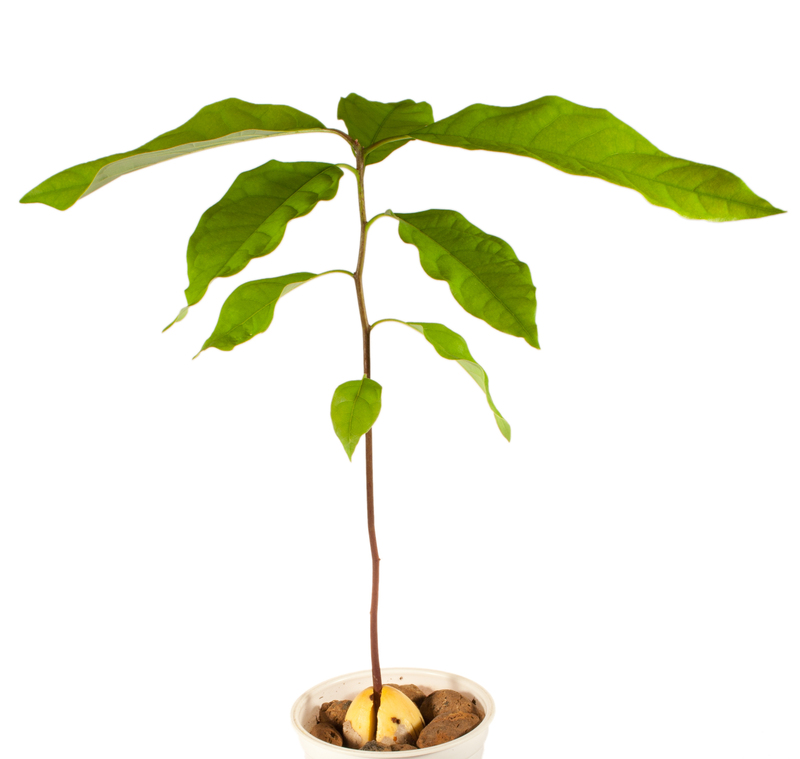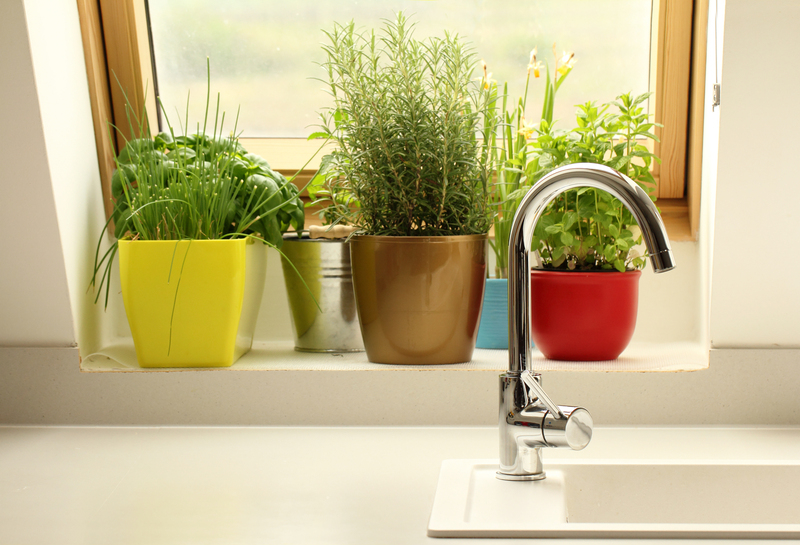Turning Organic Leftovers into Garden Gold
Posted on 08/06/2025
Turning Organic Leftovers into Garden Gold: A Comprehensive Guide
In today's world, sustainability and environmental stewardship are more important than ever. Home gardens offer a unique opportunity to contribute to both, and one of the most rewarding ways to do so is by turning organic leftovers into garden gold. This practice not only diverts waste from landfills but also enriches your soil, leading to healthier plants and better harvests. If you've ever wondered how your kitchen scraps can become a treasure for your garden, this in-depth guide will show you how.
Why Transform Organic Waste into Garden Gold?
Each year, millions of tons of food scraps and yard waste are sent to landfills, creating methane, a potent greenhouse gas. But there's a better way! By recycling organic waste into valuable compost, you support the environment and improve your garden's productivity. Composting, or turning organic leftovers into soil gold, enhances soil structure, boosts microbial activity, and increases your plants' resistance to diseases and pests.
- Saves money: Reduce the need for chemical fertilizers
- Improves soil health: Enriches soil with nutrients and beneficial microbes
- Reduces landfill waste: Helps lower methane emissions
- Supports a healthy ecosystem: Encourages beneficial insects and earthworms

What Can Be Turned into Garden Gold?
Not all waste is created equal, but most organic matter from the kitchen and yard can become nutritious compost. Here is a list of what to save for your compost pile:
- Fruit and vegetable peels: Banana skins, apple cores, carrot tops, etc.
- Coffee grounds and tea bags (make sure they're not made of synthetic fibers)
- Eggshells (crushed help add calcium to compost)
- Used paper towels (if not greasy or bleached)
- Garden trimmings (leaves, grass clippings, small branches)
- Shredded newspaper and cardboard
- Dead flowers and plant remains
Items to avoid:
- Meat and dairy products -- they attract pests and may harbor pathogens
- Diseased plants or weeds with seeds
- Oily or greasy food waste
- Large wood pieces (break down too slowly)
- Pet waste (can contain harmful microorganisms)
Composting 101: Methods to Turn Leftovers into Garden Gold
There's no one-size-fits-all approach when transforming organic leftovers into garden gold. Here are the most popular techniques, each with its special merits:
1. Traditional Compost Pile
The classic approach. Build or buy a compost bin, or simply pile your materials in the corner of your yard. Alternate between brown waste (carbon-rich, like dead leaves or cardboard) and green waste (nitrogen-rich, like food scraps or grass clippings).
- Pros: Simple, effective, cheap
- Cons: Takes time; requires occasional turning for aeration
For successful composting, maintain a mix of roughly 2:1 browns to greens. Sprinkle water to keep your pile as damp as a wrung-out sponge. Turn every 2-3 weeks to speed decomposition.
2. Vermicomposting (Worm Composting)
Vermicomposting uses red wiggler worms to break down food scraps quickly -- even indoors! All you need is a worm bin, bedding material (like shredded newspaper), and a steady diet of kitchen scraps.
- Pros: Fast, odorless, can be done inside year-round
- Cons: Worms need care and attention to maintain health
The resulting worm castings are among the richest forms of garden gold, full of plant-loving nutrients and beneficial microbes.
3. Compost Tumblers
Tumblers provide an easy, mess-free way to compost in smaller spaces. Load your organic leftovers, turn the barrel a few times per week, and wait as the ingredients cook into black gold.
- Pros: Faster decomposition, rodent-proof, tidy
- Cons: Limited capacity compared to piles
4. Bokashi Composting
An innovative, anaerobic method from Japan, Bokashi composting ferments all kinds of food waste (even meat and dairy) thanks to specialized microbes. After fermenting, the pre-compost is buried in the garden to finish turning into nutrient-rich humus.
- Pros: Processes food waste quickly, handles all leftovers
- Cons: Slight learning curve, requires bokashi bran
Secrets to Successful Composting: Turning Kitchen Scraps into Black Gold
Composting isn't just about tossing food scraps into a pile. Good composting requires balance, attention, and a bit of patience. Follow these expert tips to ensure you're truly turning organic leftovers into garden gold:
- Chop or shred leftovers: Smaller pieces break down faster and more evenly.
- Alternate browns and greens: Layer your carbon and nitrogen sources for best results.
- Keep it moist, but not soggy: Compost should feel like a damp sponge. Too wet means rot; too dry means the process stops.
- Aerate your pile: Oxygen fuels decomposition. Turn or mix your heap every few weeks.
- Monitor temperature: A successful pile heats up as microbes work; if it cools and decomposition slows, add greens or turn more often.
- Be patient: Depending on conditions, compost takes 2-12 months to mature.
Signs Your Compost is Ready
Finished compost should be dark, crumbly, and earthy-smelling—not rotten or sour. There should be no identifiable pieces of your original food scraps or yard trimmings.
Ways to Use Garden Gold in Your Landscape
Once you've succeeded at creating soil gold from organic leftovers, the fun really begins! Compost is the single best amendment you can give your garden. Here are some practical ways to use it:
- Soil amendment: Work compost into your garden beds in spring and fall to feed the soil. This boosts fertility and improves aeration and water retention.
- Mulch: Spread a 1-2 inch layer around plants to suppress weeds and keep soil moist.
- Compost tea: Steep finished compost in water to create a nutrient-rich liquid fertilizer for your plants.
- Lawn top-dressing: Rake a thin layer over your lawn to encourage healthy green growth.
- Planting holes: Add a handful to every hole when planting new trees, shrubs, or flowers.
Mistakes to Avoid When Composting Organic Leftovers
It's easy to get started, but there are some common pitfalls to avoid on your journey to turning kitchen scraps into garden gold:
- Compost pile too wet or too dry: Extreme moisture levels slow down or halt decomposition and cause odors.
- Adding the wrong materials: Meat, dairy, oils, and pet waste belong elsewhere, not in your compost pile.
- Neglecting to turn or aerate: Oxygen is essential; stagnant piles produce methane and bad smells.
- Compost bin is too small: Small piles don't heat up, slowing the process and inviting pests.
- Ignoring pests: Bury fresh food waste within your pile to avoid attracting rodents or flies.
Frequently Asked Questions: Turning Organic Leftovers into Garden Gold
Is composting messy or smelly?
Good composting doesn't smell bad! Odors mean the process isn't working properly--usually too much green, too wet, or not enough aeration. Fix the balance to enjoy an earthy, forest-floor aroma.
Can I compost in a small space or an apartment?
Absolutely! Try vermicomposting or a compact bokashi system. There are even countertop composters designed for urban gardeners.
How long does it take to turn leftovers into finished compost?
Depending on your method and diligence, composting can take as little as two months (with a tumbler or vermicomposting) or up to a year (with cold composting). Regular turning and proper balance speed up the process.
Is garden compost safe for all plants?
Yes--when compost is fully matured! Immature compost can rob young plants of nitrogen. Be sure your "garden gold" is dark and friable before using it directly on edible crops.
Advanced Tips for Creating Premium Garden Gold
If you're ready to elevate your compost game, here are some extra techniques to ensure your soil amendment is as rich as possible:
- Add rock dust or crushed oyster shell: These materials boost mineral content for healthier plants.
- Introduce beneficial microbes: Inoculating with finished compost, mycorrhizal fungi, or worm castings helps your pile break down faster and creates more robust soil life.
- Monitor pH levels: Healthy compost should be close to neutral--test with a home kit and adjust as needed.
- Layer with grass clippings carefully: Too much forms a mat and blocks airflow; always mix with browns.

Inspiring Success Stories: From Waste to Garden Wealth
Gardeners worldwide are making a difference by reclaiming organic waste and turning it into lush, productive landscapes. Community gardens, schools, and eco-conscious families are reducing landfill waste and saving money on fertilizer while growing healthier food than ever.
For example, a school garden in Northern California diverted 500 pounds of cafeteria scraps in a single semester. The resulting compost grew dozens of pounds of vegetables for students and their families.
In Europe, entire neighborhoods are pooling organic leftovers in shared bins and receiving rich compost in return to support local parks and flower beds. It's a cycle of abundance that starts with one simple choice!
Conclusion: Make Your Own Garden Gold Today
By recycling organic leftovers into garden gold, you enrich both your landscape and the planet. Whether you're a novice gardener or a seasoned green thumb, composting is an easy, cost-effective, and environmentally responsible way to grow stronger, more beautiful plants.
Start with a bin, a pile, or a worm box--and let your kitchen and yard waste work their magic. In a few months, you'll hold in your hands the best soil amendment money can't buy: a wonderful, living boost for every garden bed.
Begin today and transform your organic waste into green abundance - your garden will thank you!



